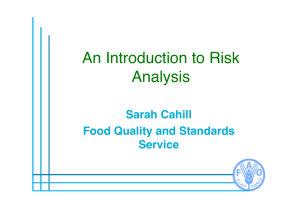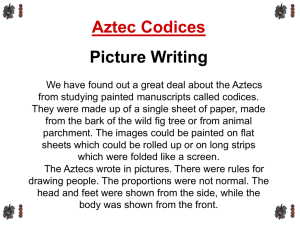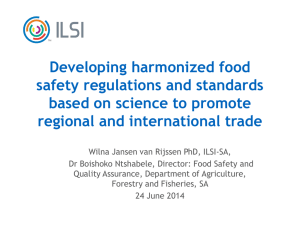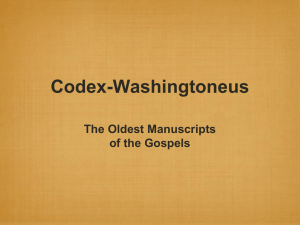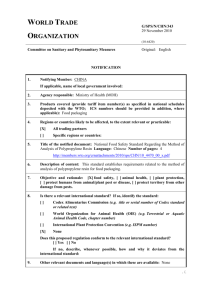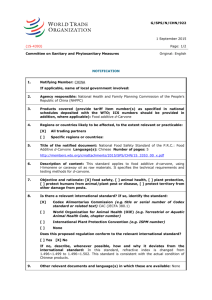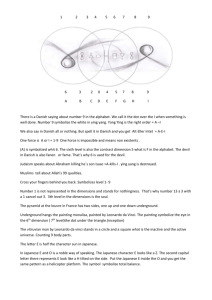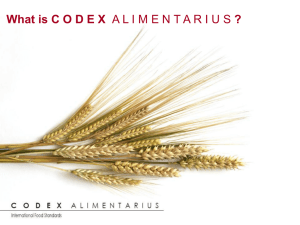Codex and the World Trade Organization
advertisement
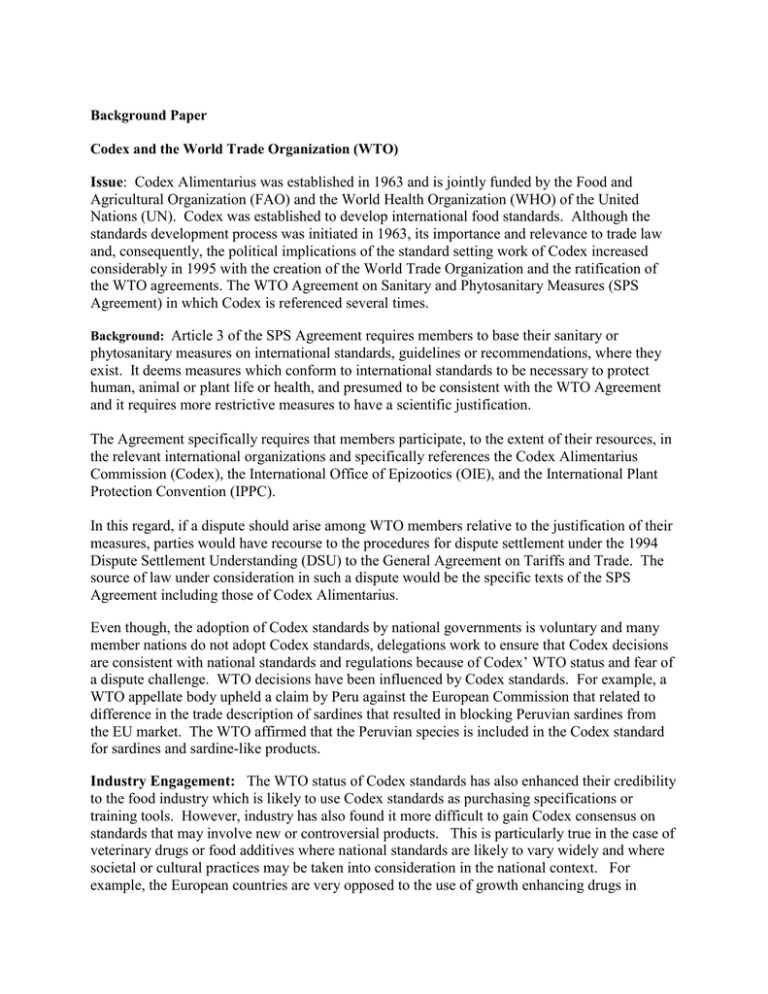
Background Paper Codex and the World Trade Organization (WTO) Issue: Codex Alimentarius was established in 1963 and is jointly funded by the Food and Agricultural Organization (FAO) and the World Health Organization (WHO) of the United Nations (UN). Codex was established to develop international food standards. Although the standards development process was initiated in 1963, its importance and relevance to trade law and, consequently, the political implications of the standard setting work of Codex increased considerably in 1995 with the creation of the World Trade Organization and the ratification of the WTO agreements. The WTO Agreement on Sanitary and Phytosanitary Measures (SPS Agreement) in which Codex is referenced several times. Background: Article 3 of the SPS Agreement requires members to base their sanitary or phytosanitary measures on international standards, guidelines or recommendations, where they exist. It deems measures which conform to international standards to be necessary to protect human, animal or plant life or health, and presumed to be consistent with the WTO Agreement and it requires more restrictive measures to have a scientific justification. The Agreement specifically requires that members participate, to the extent of their resources, in the relevant international organizations and specifically references the Codex Alimentarius Commission (Codex), the International Office of Epizootics (OIE), and the International Plant Protection Convention (IPPC). In this regard, if a dispute should arise among WTO members relative to the justification of their measures, parties would have recourse to the procedures for dispute settlement under the 1994 Dispute Settlement Understanding (DSU) to the General Agreement on Tariffs and Trade. The source of law under consideration in such a dispute would be the specific texts of the SPS Agreement including those of Codex Alimentarius. Even though, the adoption of Codex standards by national governments is voluntary and many member nations do not adopt Codex standards, delegations work to ensure that Codex decisions are consistent with national standards and regulations because of Codex’ WTO status and fear of a dispute challenge. WTO decisions have been influenced by Codex standards. For example, a WTO appellate body upheld a claim by Peru against the European Commission that related to difference in the trade description of sardines that resulted in blocking Peruvian sardines from the EU market. The WTO affirmed that the Peruvian species is included in the Codex standard for sardines and sardine-like products. Industry Engagement: The WTO status of Codex standards has also enhanced their credibility to the food industry which is likely to use Codex standards as purchasing specifications or training tools. However, industry has also found it more difficult to gain Codex consensus on standards that may involve new or controversial products. This is particularly true in the case of veterinary drugs or food additives where national standards are likely to vary widely and where societal or cultural practices may be taken into consideration in the national context. For example, the European countries are very opposed to the use of growth enhancing drugs in animals and Asian countries often restrict the use of food additives. Codex decisions that are caught in a political stalemate can block market access of safe food products.
